The Journey of a Chartered Accountant Who Helped Lacoste to Evolve from a Polo-Centric Brand to a Complete Lifestyle Product and Made its Presence Felt in Most Metros and Major Cities of the Country Today.
Hosting a large section of the rapidly growing middles class population and a strong manufacturing sector, India is emerging as a hub of the fashion industry. As per a report released by KPMG and Nielsen, the Fashion and Apparel Industry is expected to grow at 15 per cent CAGR till 2022 and become a $102 billion market. A significant market that cannot be ignored, many international brands have been entering India in the recent past. To win the Indian customers’ trust, however, the global brands need a perfect strategy than merely showing up with a gorgeous showroom. Perhaps, the new entrants can learn a few lessons from brands like Lacoste, an iconic French company that has managed to make a vast loyal Indian customer base in its 27 years of operation in the country.
“The exposure to global markets and international brands has created a paradigm shift within the past few years. Today the Indian customers are global citizens with great aspirations in life. The brand consciousness and brand affinity are touching new heights every day,” says Rajesh Jain, Managing Director and Chief Executive Officer, Lacoste India. While international brands are committing to set up their shops in India despite the economic slowdown, several Indian fashion designers and brands are going global with great success. Rajesh adds, “Fashion is fast becoming part of everyday life though there is still immense potential yet to be tapped. Due to this, India’s fashion industry is witnessing accelerated growth, with retail development taking place not just in major cities and metros, but also in Tier-II and Tier-III cities.”
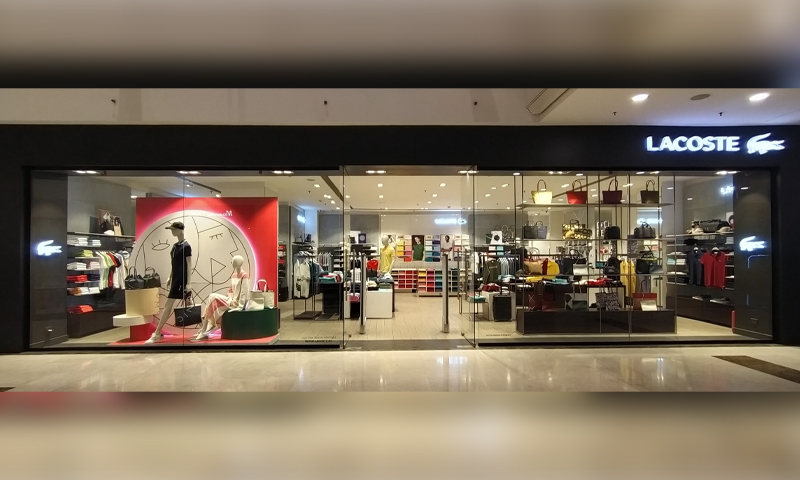
Working with Lacoste India for over a decade now, Rajesh understands that India has a vast potential for quality products, which, if delivered with the excellent shopping experience, will continue to shower its blessings. He explains, “During the last 27 years, Lacoste in India has evolved from a polo-centric brand to a complete lifestyle brand that is accessible in most metro and major cities of the country today. Perception of the brand has further strengthened as a unique premium brand for all ages and all genders.” Lacoste in India has been providing the customers with a luxurious environment and freedom of movement. Rajesh shares, “Through innovation, strict clear-cut design codes, and taking ‘Customer Delight’ as our top priority, we will always follow the strategy of delivering a sound customer service that will help us in providing the luxurious shopping experience to the customers in the fashion industry.”
Operations During the Black Swan
Like leaders across the industries, fashion CXOs are focusing on crisis management now. For Rajesh and his team at Lacoste India, the first and the top-most priority is the safety of people, that is the customers and staff. The brand has been following all government guidelines to ensure safety, be it wearing a mask, using sanitisers, washing hands, maintaining safe social distance, and many more. Then comes the business, its challenges, and the solutions. Rajesh says, “COVID-19 has created so much of uncertainty that it is hard to predict future. There cannot be any long term thinking as of now. During, at least the current financial year, given expected low volumes of sales, we would need to ensure keeping the costs under control and yet give a decent customer experience.”

For most of the retailers in the fashion and apparel industry, there are three principal heads of costs: Cost of Goods Sold (COGS), Personnel Cost, and Occupation Cost. Rajesh explains, “COGS actually has a direct correlation with the availability of inventory in the stores. Now, on one hand, with such an unpredictable environment for sale, a brand would need to keep the minimum possible inventory to control costs. On the other hand, there should be sufficient options to attract the customers and to ensure that the sale and customer experience do not get impacted due to non-availability of stock.” It is a massive challenge for any retailers to keep a delicate balance between the two extreme ends. However, Rajesh and his team are addressing this paradoxical situation by diving back into the past. He adds, “They say past holds the key to the future. What we did is, we fished out data for the period immediately succeeding the global recession in 2008/2009 and the data immediately after the demonetisation in India. We analysed how the sales performance was, in one year after these two major events. Armed with this data, we now have a tool to project future with suitable modifications as per current reality. This has helped us project sales and in-turn the need for inventory volumes to be kept for expected sale.”
When it comes to Personnel Cost, the reality is that several businesses might be staring at shut down, as they do not have any external support. Rajesh feels that job losses might become a norm rather than an exception, at least for some time. However, he believes that, “In order to control costs during these uncertain times, pay cut is better than Job losses. If a venture can keep its head above water by cutting salaries rather than complete job loss of its employees, it will reward the company in the form of much-needed support after about a year from now when the economy is expected to revive again. We did not lay off any colleague due to this pandemic,” pinpoints Rajesh.
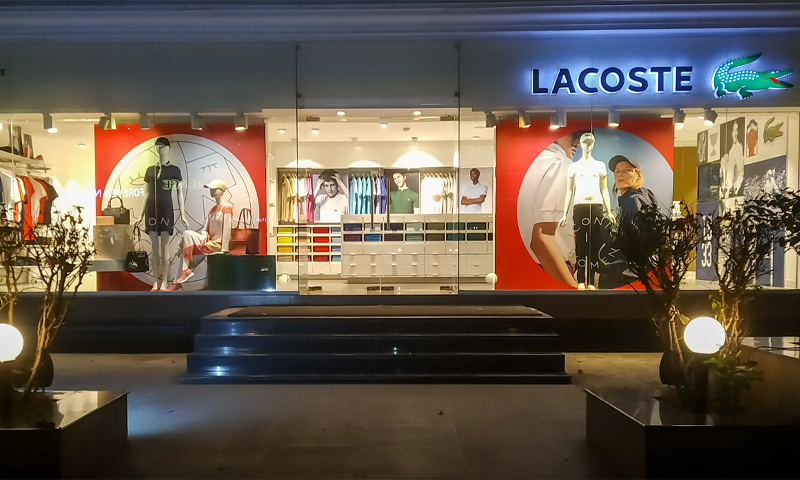
For most retailers with no/low sales, rent for the retail premises and Common Area Maintenance Charges in a mall are perhaps the most prominent cost elements during COVID-19. These Occupation Costs are likely to remain very high for an extended period. Rajesh opines, “A collaborative approach is required between the developers and retailers where developers could convert the occupation cost to a simple revenue share arrangement based on sales. A retailer needs to take decisions very carefully here.” Unfortunately, brands may need to shut down some stores and need to re-negotiate rentals at other places to stay in business. “This is not the time for expansion, this is the time for consolidation and survival. Growth can happen later. The time is to maintain overall existence, even if one needs to take some hard decision for, say, a few closures. This is the approach we are also following though we have not closed any store so far due to COVID-19,” explains Rajesh.
While it is difficult to predict what the future holds for us, Rajesh is optimistic that the world will bounce back. As a leader, he has taken several measures to overcome COVID-19 challenges. “We reached out to all the colleagues in the organisation to explain the situation and way forward. It was heartening to see that every individual came in support and pledged commitment to the cause. It talks volumes about the organizational culture and the level of faith of the colleagues,” shares Rajesh.

With the firm belief of “customer delight through customer service”, Rajesh and his team analysed the situation and the changes that might take place in the buying behaviour of the customers during the transition phase. To ensure continuous bonding with the customers, they worked on brushing up some essential skills too. Rajesh adds, “Instead of thinking of big changes, in my view, retailers need to start focusing on the basics again, to go back to routes of selling skills and customer service.”
First step that Rajesh and his team have taken was preparing themselves to be ready. They worked on ways to further improve all the SOPs – from enhancing the visual merchandising to providing the best possible customer service – by keeping the safe environment as the top priority, post lockdown. “We focused on enhancing the soft skills of the staff through online training programs. These training lessons ranged from giving the product knowledge to further enhancing customer service parameters and so on. This did ensure faster adaptability when the stores started reopening,” affirms Rajesh.
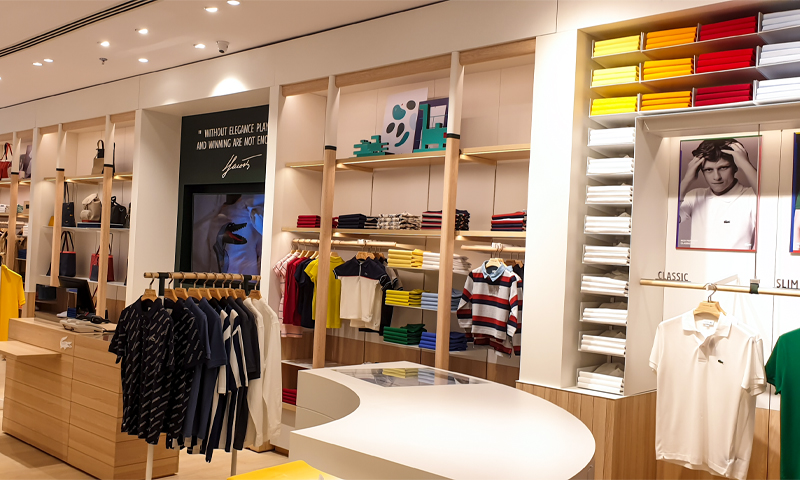
Rajesh believes that building relations with customers is the key to the success of a business. Indeed, it has proved to be a saviour and maintained a certain amount of sales momentum in all the stores during the initial period after the lockdown was over. Rajesh says, “Relationship building with other people in the ecosystem, such as developers and vendors, was also critical and helped us during this period so far.” Rajesh is always cognizant of the fact that unforeseen changes and the transition in the attitudes of the customer can have a serious positive or negative impact on the future of the business. Hence, he has tried to acclimatise to the situations to remain relevant despite the changes in market conditions.
Perks of Having a Person with Financial Background at the Helm of a Fashion Brand
Rajesh’s education was mostly in the field of commerce. He did Masters in Commerce from the University of Delhi and Chartered Accountancy from the Institute of Chartered Accountants of India. Besides, Rajesh also completed Company Secretary-ship from the Institute of Company Secretaries of India and a Certificate Course in Italian Language from Delhi University. “From a financial background, analysing and evaluating company strategies to details, my inclination for the retail industry was not a mere milestone but an opportunity to adapt to an industry which is characterised by ever-changing demands and varied preferences,” says Rajesh.
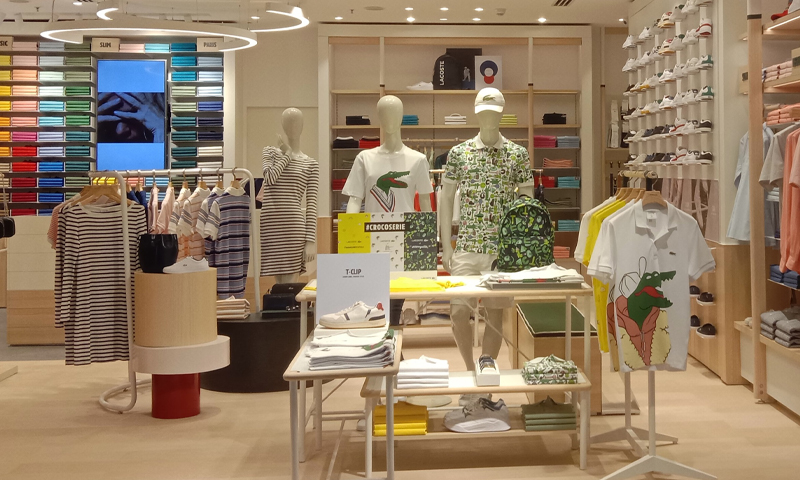
Whatever decision one takes in business will indeed have an impact on cash flows and income statements. With an accounting background, Rajesh could immediately gauge the effect and make the decision accordingly. In fact, that helped Lacoste India to grow fast and become a self-sustainable business. “Since I was not into general management earlier, I could perhaps think out of the box. Instead of thinking like a retailer or manufacturer, I placed myself into customers’ shoes, and that helped us move together as a team for further improvisation in the business,” pinpoints Rajesh.
Choosing and retaining the right team is Rajesh’s most significant contribution to Lacoste’s business in India. Rajesh is very particular while selecting a team and his biggest criteria while choosing a new colleague is ‘attitude.’ He says, “We shortlist a candidate because she or he already has the necessary skills and knowledge. With the right positive attitude, we can train the candidate for our kind of work. That has genuinely resulted in getting the right kind of colleagues.” Once onboard, Rajesh provides the team members with motivation, training, and growth opportunities. Indeed, Rajesh considers it nothing less than his duty to offer growth opportunities to his colleagues, who perform well and are committed. Rajesh adds, “We believe a lot in internal growth opportunities. These are some of the simple steps that have made me fortunate to have remained surrounded by some very committed colleagues.”
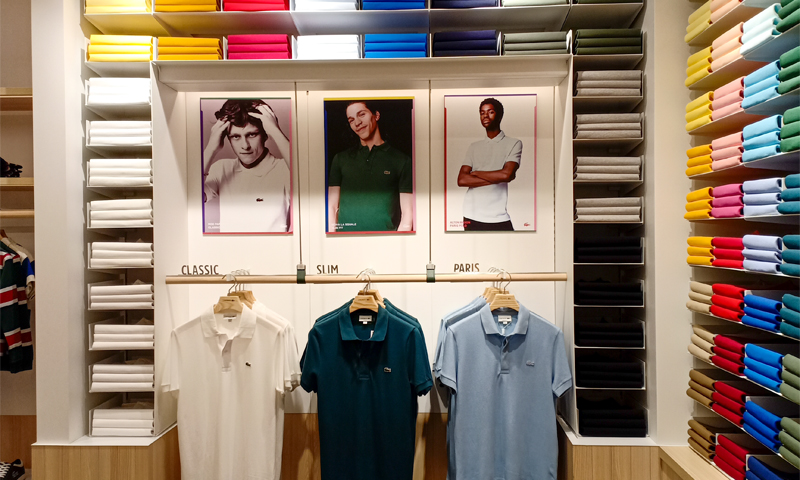
Rajesh is happy that, with the support of a strong team, he has managed to build and propagate Lacoste in India as a complete Lifestyle brand, offering unique and original universe for different verticals including clothing for women, men and children, shoes, leather goods, watches and many more. However, like any leader in business, Rajesh does face challenges daily in several areas. He shares, “I realised and accepted it pretty early that these challenges are part of life, especially when you are on a growth trajectory. I also learnt that what pays off well during tough times is resilience and perseverance. Bounce back quickly and stay firm. It might take some time, but it certainly delivers.”
Getting organised for the day by preparing a list of “Things to Do” is the first thing Rajesh does when he reaches office. Though it may not always be possible for Rajesh to work only on what he planned for the day due to various challenges attached with the retail industry, the ‘Things-to-Do’ list does give him a sense of structured plan and helps him keep the mind uncluttered. “While working in a dynamic retail world, challenges and pressure are part and parcel of everyday life. One needs to be strong enough to face them and resilient enough to bounce back,” says Rajesh.
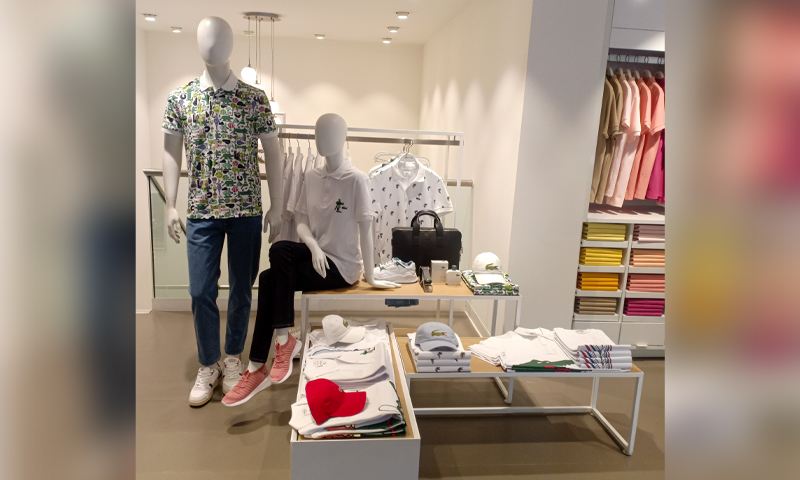
Rajesh thinks that one does not need to go far to look for people who can make an impact on your mind. He says, “We all are surrounded by colleagues, family, friends, fellow industry people, who teach you something every day. I learn from all my colleagues and other people in my life.” However, Rajesh always finds inspiration from two personalities, Thierry Guibert – Lacoste Global CEO, and Steve Jobs – Former CEO of Apple. “Thierry Guibert can keep the team together and is very innovative in his thought process. He really thinks ahead of times and is futuristic in his approach. Steve Jobs’ ideas and principles were so clear. He understood that his work was to run a business and not to win some popularity contest,” explains Rajesh.
Leading global brand in an industry that is known for intense competition, Rajesh has learnt that an ethical and aesthetic attitude towards life helps you achieve what you want. He believes in hard work, discipline and most significantly in nurturing relationships. “Lacoste India’s vision has been and continues to remain to make constant sustainable growth, not compromising ever on quality and performance. All our efforts are channelised towards making the clients live a unique experience regardless of the distribution network, physical or digital, everywhere in the world,” affirms Rajesh. While Customer Delight continues to remain the top priority, Lacoste will always be working towards more premiumisation, and it is evident in the offerings and look and feel of the stores all over the country. “I do not think having achieved any milestone can be categorised as ‘success’ because it suggests complacency. I believe in Robert Frost poem ‘And miles to go before I sleep….,’” concludes Rajesh.


